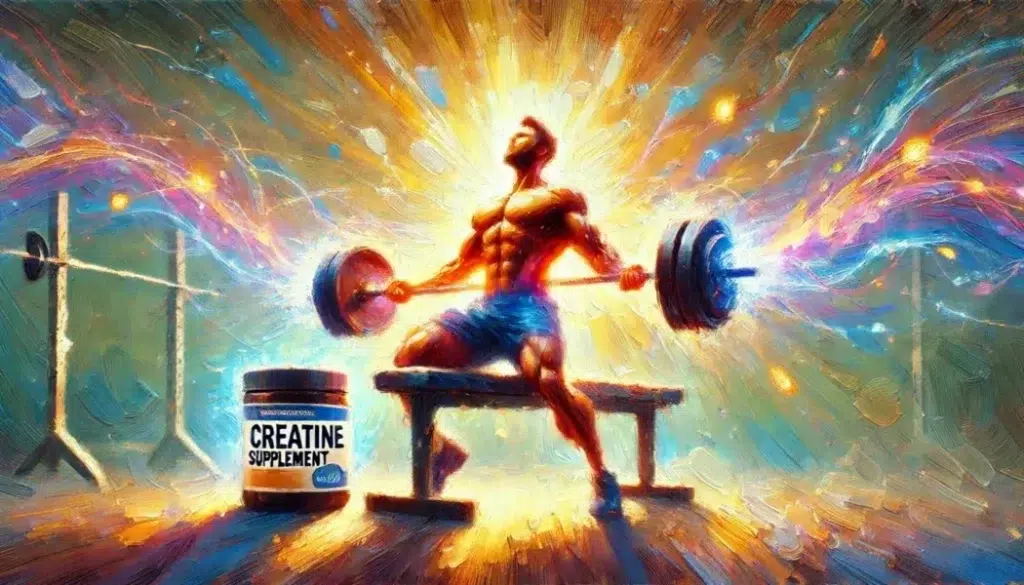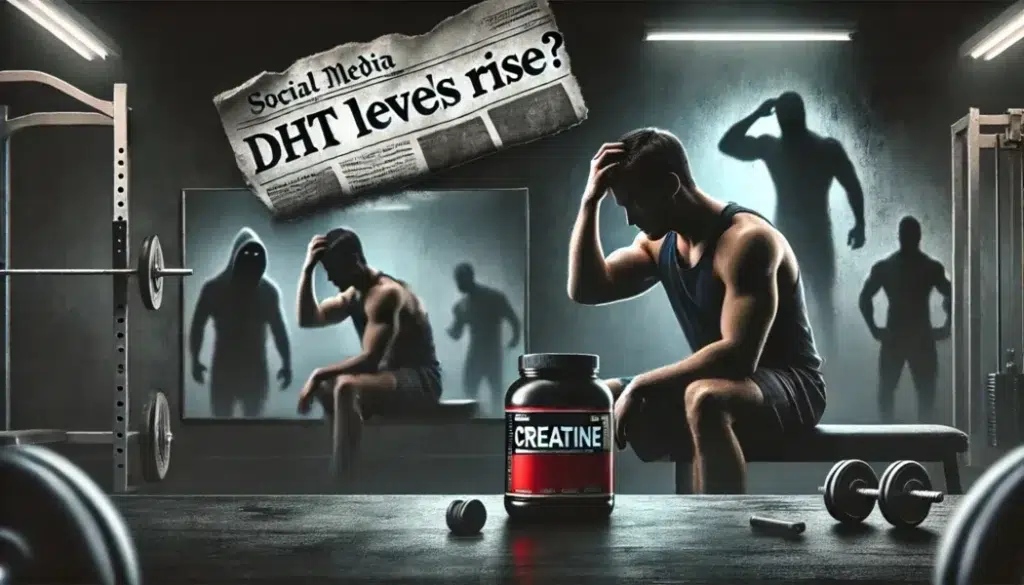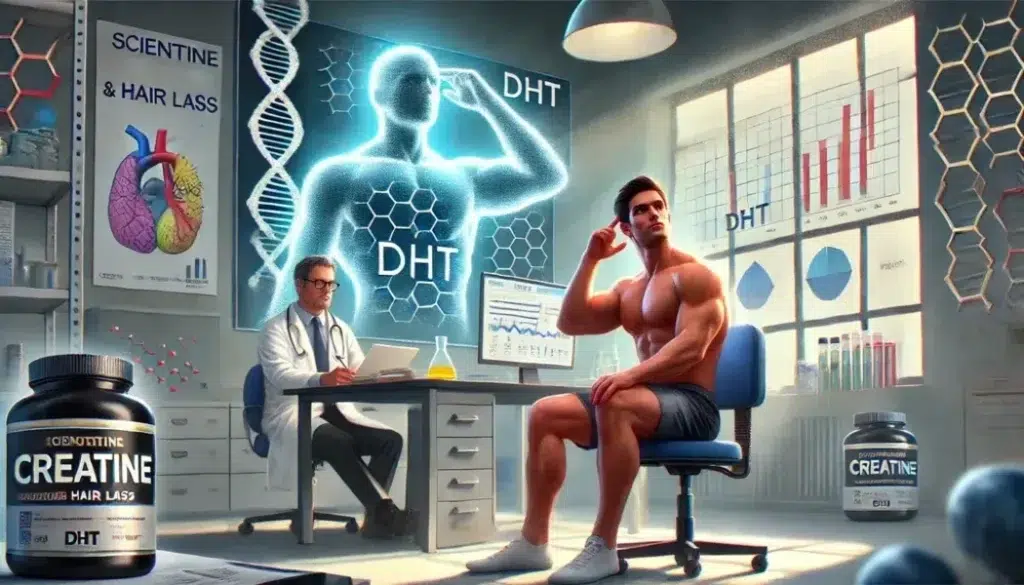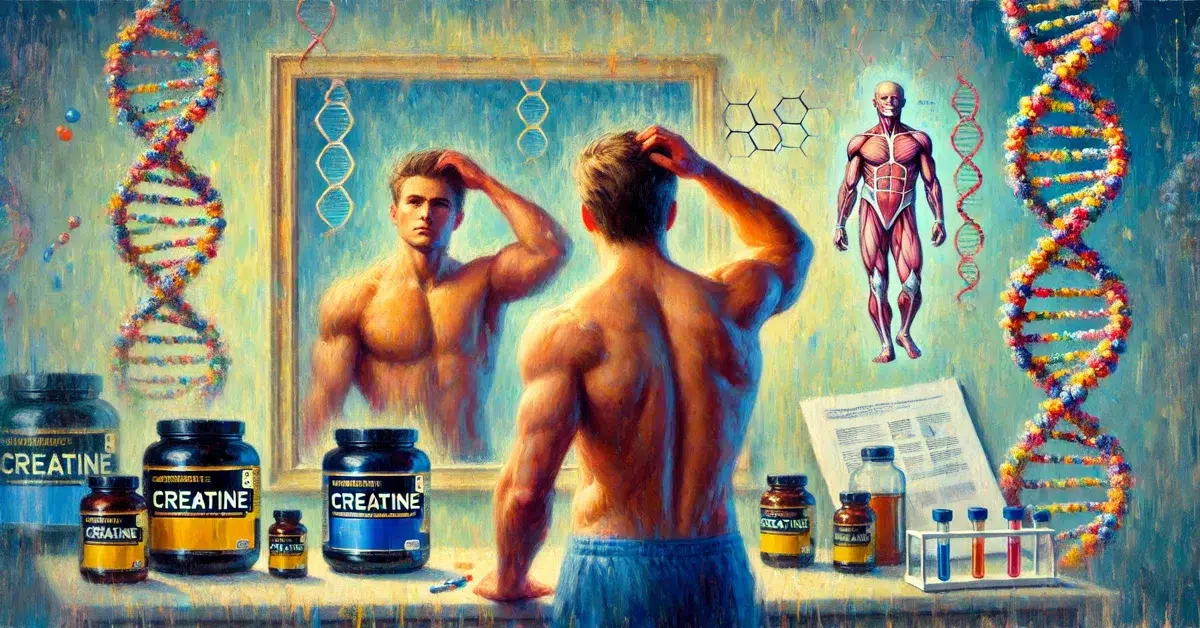Creatine’s in the spotlight as a go-to supplement for those looking to boost athletic performance and muscle mass. It’s a naturally occurring compound, mostly stored in muscles, and plays a big role in producing ATP—the energy currency of the cell—making it invaluable especially for high-intensity workouts.
It’s no surprise how creatine has carved out a niche in the world of fitness, particularly among men aiming for that edge in sports or gym sessions. It’s not just the pros; everyday folks are turning to creatine, wooed by promises of increased strength, power, and lean mass.

Quite the rock star in supplements, creatine also boasts a decent safety record when used right. Most users don’t see a downside and swear by the gains they achieve. It’s backed by a trove of research touting its benefits, making it one of the most studied supplements out there.
But hey, every silver lining has its cloud, and for creatine, hair loss seems to have become the talk of the town. Understanding what creatine truly offers and why it’s so popular is step one before jumping to any conclusions about its link to hair health.
📉 Origins of Hair Loss Concerns
Creatine didn’t just suddenly get the blame for hair loss for no reason. It kicked off with a study, stemming fears among users. That study suggested a connection between creatine use and increased DHT levels—a hormone linked with hair loss. This rapidly fired up concerns, especially in folks already worried about their hairlines.
Celebrity endorsements and fitness influencers sometimes fanned the flames, even when the science didn’t back their claims. It’s all too easy to run with a catchy headline without getting into what the actual scientific findings were.

In the health and fitness world, rumors can spread like wildfire. When influential people speak, their words carry weight, sometimes more than scientific evidence itself. This is where the creatine-hair loss link found fertile ground. But remember, headlines don’t always tell the full story.
Addressing concerns with solid knowledge is vital. Separating myth from fact helps in understanding the true implications, or lack thereof, of supplements like creatine.
🔬 Scientific Findings on Creatine and Hair Loss
The buzz around creatine and hair loss might seem alarming, but it’s crucial to take a clear-eyed look at what science actually shows. So, what’s the real connection? Turns out, it mainly circles around DHT, a hormone involved in hair thinning and loss. But does creatine really bump up DHT levels to a hair-threatening extent? That’s where things get interesting.
A pivotal study often cited linked creatine to increased DHT, leading many to assume a direct path to hair loss. However, the increase wasn’t shown to be substantial enough to cause such outcomes in most individuals. The science just doesn’t fully back the dramatic claims floating around.

It’s important to understand the difference between temporary hair shedding, which can happen for various reasons, and actual long-term hair loss. Stress, diet, or even seasonal changes can bring about temporary hair shedding.
Most of the buzz around creatine stems from limited data, and broader research hasn’t consistently supported the idea that creatine is a direct culprit in hair loss. Keeping that in mind, it might be useful to look into other hair loss causes that science points to more conclusively instead.
Before hitting pause on creatine based on hair fears alone, it’s worth noting that individual experiences vary. Some might notice changes, while others don’t see any effect. So, checking with your healthcare provider if you’re worried could help determine personal risk factors or issues beyond just creatine use.
🌿 Beyond Creatine: Real Factors Affecting Hair Health
When talking hair health, it’s not always fair to point fingers solely at creatine. Truth is, genetic predisposition is often at the core of hair loss for many people. If your family has a history of hair thinning, that’s something to consider first.
Lifestyle choices also play a massive role. Stress, poor diet, and lack of sleep can wreak havoc on hair health. While hitting the gym is great, pairing those workouts with a balanced diet loaded with vitamins and minerals is just as important for keeping that mane flourishing.

Let’s not ignore the basics like proper scalp care. Keeping your scalp healthy with suitable shampoos, conditioners, and maybe even occasional treatments can keep potential problems at bay.
Bringing in expert advice can also make a difference. Dermatologists or trichologists offer specialized insights into maintaining healthy hair, allowing you to pick and choose the supplements or treatments that best fit your specific needs.
Remember, it’s all about the bigger picture. Healthy habits don’t just safeguard against hair issues—they contribute to your overall well-being and confidence. Incorporating elements like stress management, sound nutrition, and good hair care routines is a holistic way to approach hair health.
⚖️ Conclusion: Balanced View on Creatine and Hair Health
Scrutinizing the evidence, creatine’s direct link to hair loss seems a bit shaky. While it’s good to be informed, many users enjoy the benefits without experiencing any negative impacts on their hair.
For guys thinking about starting or continuing with creatine, weighing personal health goals and any potential genetic risk factors is key. It’s always smart to adapt a wait-and-see approach. Monitor any hair or body changes when initiating a new supplement like creatine, and if concerns arise, professional guidance can be a great ally.

Holistic health practices, like nutritious eating, good sleep, and effective stress management, play a vital role in maintaining both muscle mass and hair health. Supplements can be helpful, but the core of wellness always comes back to balance in lifestyle choices.
The jury may still be out on whether creatine is the sole enemy of hair, but it’s clear focusing on overall wellness offers substantial benefits. So the decision to stick with creatine should be made after considering the broader picture: Does it align with your health goals? And are there adjustments you can make to safeguard your hair while reaping the rewards of creatine?

❓ FAQ: Creatine and Hair Loss — What You Need to Know
🧪 Does creatine directly cause hair loss?
There’s no solid scientific proof that creatine directly causes hair loss. One small study suggested a potential increase in DHT levels, but more research is needed.
🧬 How is creatine linked to DHT?
Some speculate that creatine might elevate DHT (a hormone linked to hair loss in men). However, this effect hasn’t been consistently observed in larger studies.
💊 Should I stop taking creatine if I’m worried about hair loss?
Not necessarily. If you have a genetic predisposition to hair loss, monitor your hair health. Consider combining creatine with DHT-blocking strategies, like scalp treatments or supplements.
🧠 Are there safer alternatives to creatine for muscle gain?
Yes. Alternatives like beta-alanine, BCAAs, or protein-based recovery formulas may support performance without potential hormonal effects — but none are as well-studied or effective as creatine.
🧾 Last updated: June 2025 based on current scientific evidence and sports nutrition data.


Leave a Reply